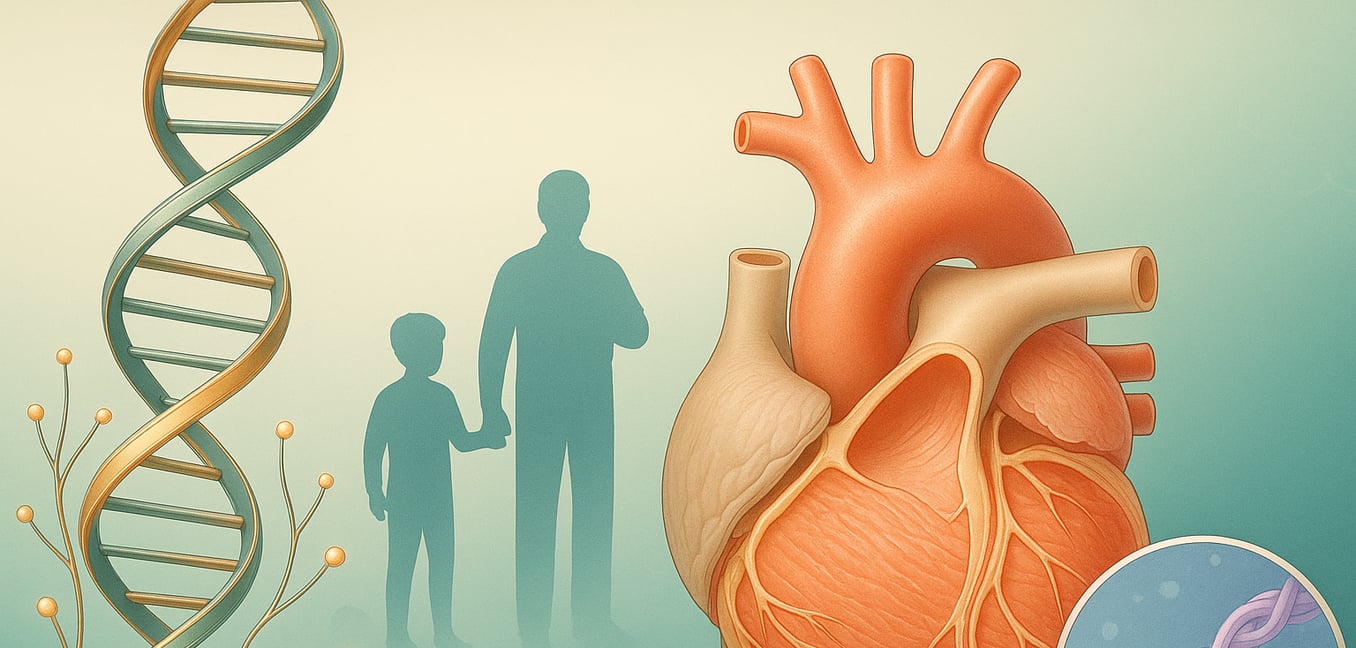Is Genetic Counseling Recommended for a Family History of Marfan Syndrome?
Yes, genetic counseling is strongly recommended for anyone with a personal or family history of Marfan syndrome. This genetic condition affects the body's connective tissue, the material providing strength and flexibility to structures like the heart, blood vessels, bones, and eyes. Genetic counseling is a crucial first step to understanding your personal risk, navigating complex testing options, and making informed health decisions for you and your family.
A genetic counselor acts as an expert guide, translating complex medical information into a clear, personalized plan. They help you navigate the journey from a potential risk to proactive health management.
Why Genetic Counseling is Essential for Families
Navigating a Marfan syndrome diagnosis involves understanding its genetic roots, the available tests, and the implications for your future. A genetic counselor provides essential guidance in several key areas.
To Clarify Your Personal and Family Risk
A genetic counselor will help you understand how Marfan syndrome moves through a family tree. The condition follows an autosomal dominant inheritance pattern. "Autosomal" means the responsible gene is not linked to sex, so it affects males and females equally. "Dominant" means that inheriting just one copy of the mutated FBN1 gene from one parent is enough to cause the disorder.
This pattern results in a 50% chance for each child of an affected parent to inherit the condition. This probability is like a coin toss and resets with every pregnancy.
In about 25% of cases, Marfan syndrome appears in an individual with no family history. This is due to a new, or de novo, mutation that occurs spontaneously in the egg or sperm of a parent, or during early development. A counselor can explain what this means for the affected person and their future children, who would then have a 50% chance of passing the condition on.
To Guide You Through Genetic Testing
Genetic testing provides the most definitive way to diagnose Marfan syndrome, and a counselor is the ideal professional to guide you through the process.
- Confirms the diagnosis. The symptoms of Marfan syndrome can overlap with other connective tissue disorders. Genetic testing removes this ambiguity by identifying the specific FBN1 mutation, ensuring an accurate diagnosis and the correct management plan.
- Enables predictive testing for relatives. Once a mutation is found in one family member, other relatives can be tested for that exact mutation. For those who test negative, it provides immense relief and frees them from unnecessary medical surveillance. For those who test positive, it allows proactive health management to begin immediately, often before serious complications arise.
- Clarifies borderline cases. Some individuals have features of Marfan syndrome but do not meet the full clinical diagnostic criteria. In these situations, finding a pathogenic FBN1 mutation can confirm the diagnosis and ensure the person receives life-saving monitoring.
To Empower Family Planning Decisions
For individuals and couples with Marfan syndrome, a genetic counselor provides detailed, non-judgmental information about reproductive options. They can explain advanced technologies that empower you to make choices aligned with your personal values. These options include prenatal testing during pregnancy or preimplantation genetic testing (PGT). PGT is performed with in vitro fertilization (IVF) and allows for embryos to be tested for the family's specific mutation before a pregnancy is established.
To Coordinate Care and Provide Support
Managing Marfan syndrome requires a team of specialists. A genetic counselor often serves as a central point of contact, helping to coordinate this multidisciplinary care. They ensure you understand the recommended screening schedule, such as regular echocardiograms for the aorta, and can facilitate referrals to cardiologists, ophthalmologists, and other experts.
Beyond medical logistics, they are a crucial link to emotional and social support. Counselors can connect families with organizations like The Marfan Foundation, where they can find a community of people with shared experiences and valuable resources.
Managing Marfan Syndrome: A Proactive Approach
Receiving a diagnosis through genetic counseling and testing is the starting point for proactive health management. This knowledge empowers you and your family to take control and protect your well-being.
Sharing this genetic information with biological relatives is a critical next step. Since parents, siblings, and children of an affected individual have a 50% chance of having the same gene mutation, informing them gives them the opportunity to seek their own medical advice.
Medical management is overseen by a team of specialists focused on the body systems most affected by the condition. A cardiologist will schedule regular echocardiograms to monitor the aorta, the body’s main artery, which is at risk of dangerous enlargement. Annual exams with an ophthalmologist are also vital to check for lens dislocation and other eye-related complications. This consistent surveillance is the cornerstone of living a long, healthy life with Marfan syndrome.
Daily management often includes medication and lifestyle adjustments. Doctors frequently prescribe medications like beta-blockers or angiotensin receptor blockers (ARBs) to reduce stress on the aorta. Individuals are also counseled to engage in low-impact physical activities while avoiding contact sports and heavy weightlifting. These proactive steps, guided by the knowledge gained from genetic counseling, are key to managing the condition effectively.










